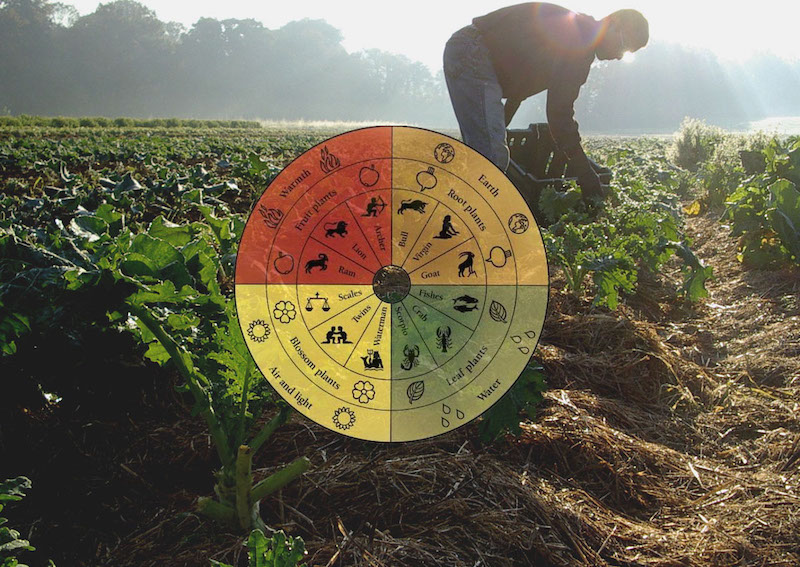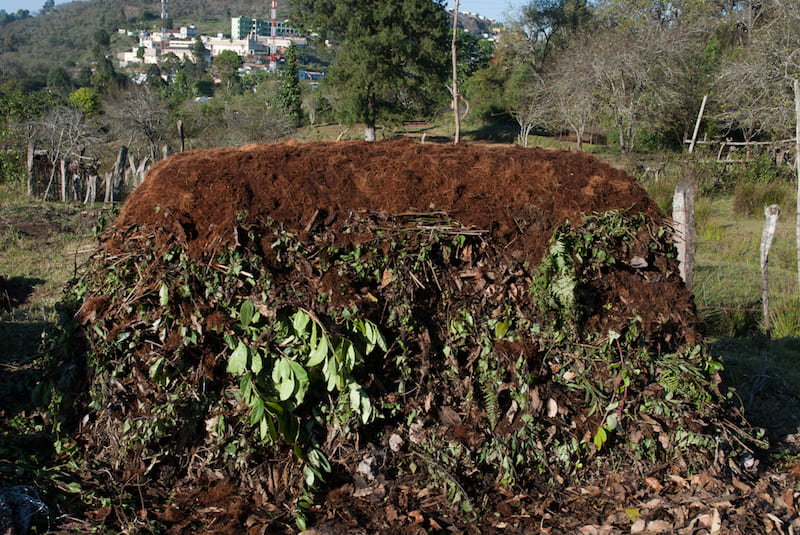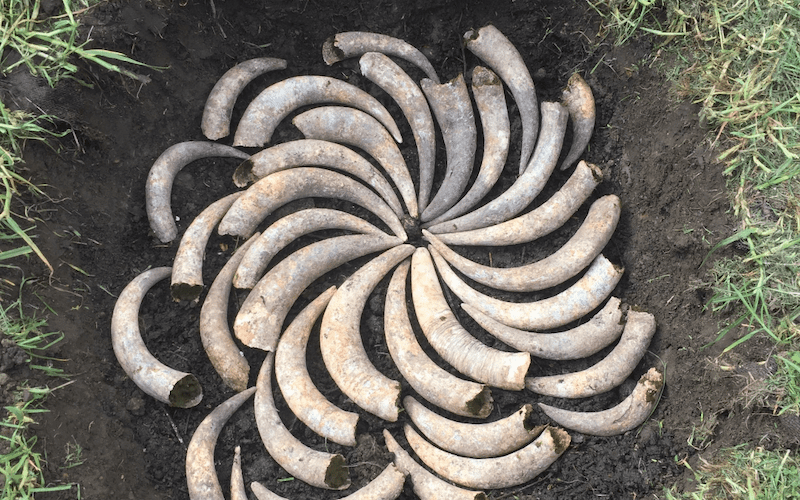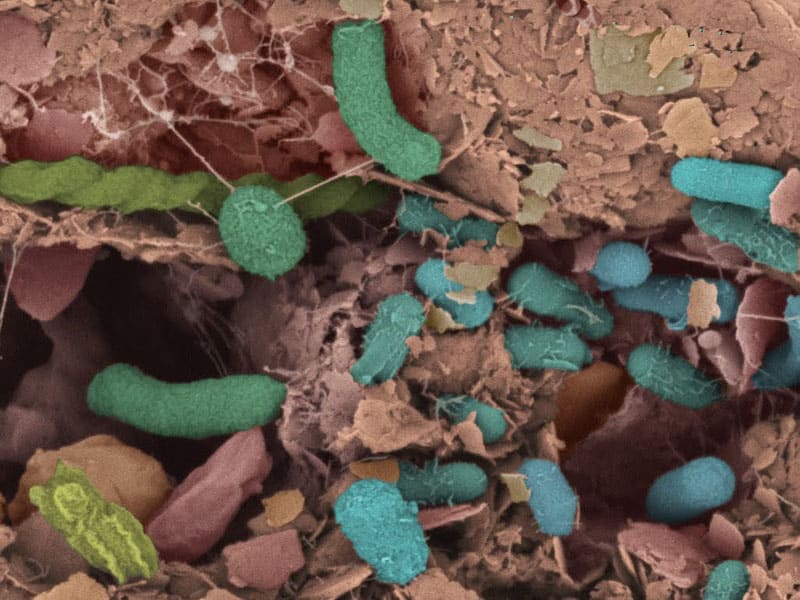
Rudolf Steiner, the founder of biodynamic farming, introduced this innovative method of agriculture in the early 20th century. Steiner's philosophy was built on the foundations of Anthroposophy, a spiritual science that merges the spiritual with the physical world.
Anthroposophy, a philosophy founded by Rudolf Steiner, forms the backbone of biodynamic farming. More than just a set of principles or techniques, Anthroposophy introduces a comprehensive worldview that transcends the tangible and ventures into the spiritual realm. It proposes a deeper understanding of existence, acknowledging that the physical and spiritual aspects of life are intertwined and equally significant. This philosophy fosters an outlook where agriculture isn't merely a means to an end, but rather an endeavor intricately connected with the cosmos.
The holistic perspective engendered by Anthroposophy profoundly influences the biodynamic approach to farming. Traditional agricultural systems primarily focus on yield maximization, often at the expense of environmental health. In contrast, biodynamic farming, inspired by Anthroposophical principles, aims for balance and harmony. It does not treat farming practices as isolated actions, but instead, views them as integral components of a much larger whole. The farm, in this paradigm, isn't merely a place where crops are cultivated. It's a vibrant, living system that's interconnected and interdependent, resonating with the rhythms of nature.
Biodynamic farming respects the concept of farm individuality, drawing from Anthroposophy's tenet of recognizing the unique essence in every entity. From this perspective, a farm isn't merely a plot of earth; it is viewed as an individual organism, each brimming with its own distinctive personality and features. This perspective impacts everything from soil management and crop selection to the integration of livestock and the rhythm of farm activities. This recognition of farm individuality leads to the development of farming practices that are attuned to the specific needs and potentials of each farming landscape. By treating each farm as a unique, self-contained entity, biodynamic farming allows the full expression of each farm's inherent strengths and characteristics.

Central to the practice of biodynamic farming are the special preparations, denoted as numbers 500 through 508. These aren't merely a random collection of additives, but a carefully formulated array of substances that blend natural elements like manure, medicinal herbs, and distinct mineral compounds. Crafted using unique processes rooted in Anthroposophical understanding, these preparations are much more than soil amendments; they serve as crucial links between the farm and the cosmic forces, enhancing the vitality of the land and crops.
The biodynamic compost preparations are meticulously designed to the ethereal aspects of the farm. Each preparation, from 500 to 508, has its unique purpose and function within the biodynamic framework. They are not merely meant to replenish nutrients or modify soil structure, as is common with conventional compost amendments. Instead, these preparations engage with the life forces present in the soil, plants, and the surrounding cosmos, strengthening the ties that bind these elements together and enhancing the overall health and vitality of the farming ecosystem.
These measures act as growth promoters, quickening the development and expansion of crops, amplifying the microbial diversity in the soil, and augmenting the farm's resilience against pests and diseases. Each substance used in the preparations is carefully selected for its unique properties and influences on different aspects of the farm organism. Manure, for instance, is valued for its ability to stimulate soil life and fertility, while specific herbs like yarrow, chamomile, and stinging nettle are employed for their unique effects on composting processes and plant health.
Thus, the use of biodynamic compost preparations represents a harmonious fusion of science and spirituality, of the tangible and intangible. It encapsulates the core philosophy of biodynamic farming — working in sync with nature's rhythms, fostering a vibrant, balanced ecosystem, and nurturing the unseen life forces that breathe vitality into a farm. This focus on holistic nourishment sets biodynamic farming apart, enabling it to foster sustainable and vibrant farming landscapes.

Perhaps the most renowned of the biodynamic preparations are the Horn Manure (500) and Horn Silica (501). These formulations, born out of deep reverence for nature's wisdom and anthroposophical insights, utilize the transformative powers of cow horns to create unique remedies for the farm.
Horn Manure (500) is a preparation method that begins with filling a cow horn with fresh, high-quality cow manure. The manure-packed horns are then buried in the soil over the winter months, harnessing the cool, earthy energies and processes that dominate this season. Through winter, the manure undergoes a transformation, absorbing vital life forces from the soil and the cosmos. When unearthed in spring, the manure has transformed into a potent substance, full of life-giving properties. This preparation is diluted in water and applied to the soil in a spray or direct application, helping to enhance soil fertility, stimulate root growth, and invigorate soil microbial activity.
Horn Silica (501), on the other hand, involves packing a cow horn with finely ground quartz and burying it in the ground during the summer months. This preparation captures the warm, radiant energy of summer, infusing the silica with sunlight's potent forces. After several months, the horns are retrieved, and the contents, now transformed into a dynamic, silica-rich preparation, are used as a foliar spray. When sprayed onto the plants, Horn Silica stimulates robust growth, enhances photosynthetic activity, and strengthens the plant's structure and resistance to diseases.
These two preparations, Horn Manure and Horn Silica, encapsulate the innovative, holistic philosophy that characterizes biodynamic farming. They act as a powerful endorsement of the might of nature's processes, the metamorphic impact of nature's forces, and the deep-seated symbiosis between the terrestrial realm, celestial sphere, and all living entities. Through these practices, biodynamic farmers nurture their farms not just as a means of production but as living, evolving organisms deeply woven into the cosmic fabric.

Biodynamic farming operates on the fundamental understanding that the Earth is intimately interconnected with the cosmos. It recognizes that lunar cycles, planetary movements, and stellar positions have considerable impacts on the biological processes on Earth. This cosmological approach is encapsulated in the use of an astrological calendar, a unique tool used to guide the rhythms of farm activities in biodynamic agriculture.
The astrological calendar is a sophisticated chart that maps out the celestial movements and their corresponding influences on various aspects of farming. From the germination of seeds and the growth of plants to the optimal times for planting and harvesting, the astrological calendar serves as an invaluable guide for biodynamic farmers. It aligns farming practices with the celestial rhythms, ensuring that agricultural activities are carried out in harmony with the larger cosmic forces. This is a significant shift from conventional farming, which usually bases its timing on more straightforward factors like weather and seasonality.
In line with this, biodynamic farming gives special emphasis to lunar and stellar influences. For instance, the gravitational tug of the moon is perceived to have a significant effect on water within the Earth's biosphere, influencing everything from the undulation of oceanic tides to the changes in groundwater levels. In a similar way, biodynamic farmers believe that these lunar rhythms influence the growth and development of plants, particularly the flow of plant sap and root activity. Likewise, the configuration of planets and constellations is understood to have an impact on multiple facets of plant well-being and growth, influencing aspects ranging from the maturation of leaves and stems to the generation of fruits and seeds.
By harmonizing farming activities with these celestial rhythms, biodynamic farming aims to tap into the natural vitality of the cosmos, promoting vibrant plant growth, enhancing soil health, and creating a resilient farm ecosystem. This practice exemplifies the holistic, interconnected perspective that is at the heart of the biodynamic approach to agriculture.

Vortex stirring is a unique practice employed in biodynamic farming that goes beyond simple mixing of preparations. It is a specific method of stirring biodynamic preparations in water, in a way that invokes the natural dynamism of the universe. This stirring process involves creating a powerful vortex in one direction, then disrupting it by stirring in the opposite direction, and repeating the pattern. This rhythmic stirring is more than just a mechanical process; it is a meditative and purposeful action intended to imbue the water with life-giving energies.
The method draws inspiration from the natural world, mirroring the cyclical patterns and spiraling movements observed in galaxies, weather systems, and even in the growth patterns of plants. The vortex, as seen in tornadoes, whirlpools, and galaxies, is considered a powerful symbol of life energy. In the context of biodynamic farming, the vortex created during stirring is believed to concentrate and intensify the life forces present in the preparation, thereby infusing the water with dynamic, cosmic energy.
The resulting potent mixture is then sprayed on the fields or compost piles, delivering these life-giving forces directly to the soil and plants. This practice reflects the biodynamic philosophy of working in concert with nature's inherent rhythms and patterns. Through vortex stirring, the biodynamic farmer seeks to activate the inherent potential in the preparations, invigorating the farm with the dynamic forces of nature and the cosmos.
In the broader context, vortex stirring exemplifies the thoughtful, intentional approach to farming that defines biodynamics. Each activity, regardless of its size or scope, is undertaken with a keen comprehension of its purpose and its potential influence on the entirety of the farm. It is a practice that marries physical effort with spiritual intent, thereby reflecting the overarching goal of biodynamic farming to create balanced and harmonious farm ecosystems.
The philosophy of farm individuality is a cornerstone in biodynamic farming, recognizing each farm as a unique, self-contained organism. This holistic view naturally lends itself to the fostering of high biodiversity and the implementation of polyculture, the practice of cultivating multiple species together. Rather than homogenizing landscapes with monocultures, biodynamic farming encourages a vibrant tapestry of diverse crops, a feature that adds resilience and vitality to the farm ecosystem.
Complementary to this practice is the inclusion of animals within the farming system. In the eyes of a biodynamic farmer, animals are not merely a source of produce but are integral components of the farm organism. Their roles go beyond what they physically provide; their interactions with the land—through grazing, manure deposition, and soil aeration—are crucial to maintaining the balance of the ecosystem. The integration of animals contributes to a closed-loop system where waste is recycled, soil fertility is enhanced, and the health of the entire farm organism is preserved. In this sense, biodynamic farming strives for a harmonious interplay between crops, animals, and the wider environment, reflecting a profound understanding of nature's interconnectedness.

In the realm of biodynamic farming, soil health is not just a matter of concern—it's a commitment that is deeply embedded in every practice. Biodynamic farmers view the soil as a living entity, teeming with microbial life, and act as its stewards, employing practices that nourish and protect it.
A myriad of techniques are utilized towards this goal, each with its unique benefits. The use of cover crops, for instance, helps in regenerating the soil. These plants protect the soil from erosion, improve its structure, and can even fix atmospheric nitrogen, enhancing soil fertility. Green manure, derived from these cover crops, serves as an organic fertilizer, replenishing the soil with essential nutrients while improving soil structure and promoting beneficial microbial activity. Furthermore, biodynamic farming embraces crop rotation, a practice that helps maintain soil fertility by ensuring a balance of nutrients in the soil and disrupting pest cycles. The practice of no-till farming is another strategy favored in biodynamic systems, where the soil is left undisturbed to preserve its structure and prevent erosion.
Every one of these practices reflects a profound regard for the soil as a dynamic, living matrix that demands both nurturing and protective measures. This emphasis on soil health is not just about sustainable productivity but is also a reflection of the biodynamic farmer's commitment to fostering a vibrant and resilient farm ecosystem that is in harmony with nature's rhythms and cycles.
Biodynamic farming is a unique agricultural approach that seeks to attain self-reliance to the greatest extent possible, with a conscious effort to keep external inputs to a bare minimum. It is a model that promotes independence and resilience, aiming to create agricultural systems that can rely primarily on the resources within their own boundaries. This approach aligns with the concepts of circular economy and closed-loop systems, where waste is minimized, and resources are used to their full potential.
Another key feature of biodynamic farming is its strong commitment to local production. This approach not only strengthens the concept of sustainability within farming methods but also greatly contributes to minimizing the carbon emissions tied to the long-distance transport of food and other farm products. By promoting local production and consumption, biodynamic farming directly addresses a key source of greenhouse gas emissions, thereby taking a significant stance in alleviating the effects of climate change.
Furthermore, biodynamic farming is a clear embodiment of sustainable agriculture in its most comprehensive sense. Rather than just focusing on boosting crop output, it includes the safeguarding of natural resources and the prolonged health and sustainability of the land. It underscores the necessity of fostering the soil, maintaining biodiversity, and managing resources in a manner that guarantees their future availability. This comprehensive perspective of agriculture illuminates the interconnectedness of all farm ecosystem components, making sure that farming practices cater to the farm's immediate requirements, while also maintaining the land's health and productivity for future generations.
Commitment to the principles of biodynamic farming isn't merely a verbal assertion; it is thoroughly scrutinized and affirmed through a stringent biodynamic certification process. This rigorous system of accreditation goes beyond simple compliance checks. It dives deep into the operational practices of a farm, evaluating its approach to cultivation, its treatment of livestock, its resource management, and its overall commitment to the biodynamic philosophy. This detailed evaluation process ensures that any farm that attains biodynamic certification is wholly committed to the rigorous standards and principles this form of agriculture demands.
Acquiring biodynamic certification is a clear testament to a farm's dedication to maintaining and promoting the highest ideals of biodynamic farming. This accreditation serves as a recognizable badge of honor and quality assurance, letting consumers know that the products they are purchasing come from a farming system that respects the earth and its natural cycles. In addition, it confirms the farm's unshakeable commitment to practices that uphold sustainability, responsible handling of resources, and farming methods that foster the enduring health and productivity of the land. The certification process, thus, acts as an important tool for both the promotion and the assurance of the highest standards in biodynamic farming.
In the face of mounting environmental challenges, biodynamic farming offers a path towards a more sustainable and resilient agrigulture. By viewing the farm as an interconnected whole, nurturing the health of the soil, promoting biodiversity, and working in harmony with nature's rhythms, biodynamic farming has the potential to transform the way we grow our food. It's not just about producing nourishment for the body, but also for the earth, and for the soul. It is a promise of a future where farming is an act of stewardship, a harmonious collaboration with nature, and a source of vitality for generations to come.
Ready to transform your land into a high-yield, sustainable farm? Let Crop Circle Farms design and build a custom, low-impact, and water-efficient farm tailored to your needs. Double your income and cut your costs in half! Contact Us
Help us expand our mission to revolutionize agriculture globally. We are seeking partners to implement Crop Circle Farms to feed people in need. Together, we can build scalable food production systems that save water, reduce costs, and feed thousands of people. Contact Growing To Give